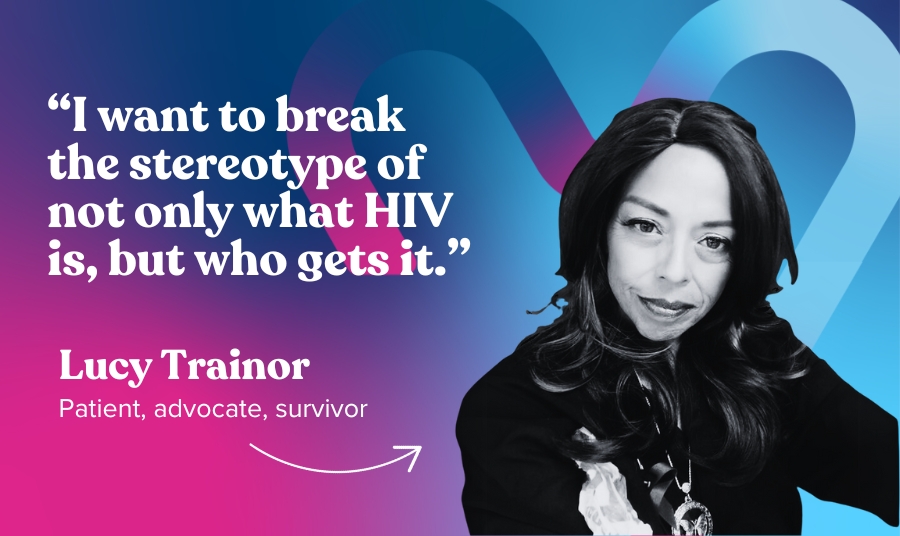Here’s the bottom line. There has never been a more challenging time to be a covered entity receiving funding from the 340B program. As if two years of often overwhelming adjustments wrought by the COVID-19 pandemic weren’t enough, organizations now are also facing a period of vast uncertainty brought about by recent drug manufacturer reimbursement changes.
At risk is the sustainable funding covered entities depend on to continue caring for some of the most vulnerable and underserved populations in the United States. To adapt, they’ll need to take a close, honest look at all the options available for strengthening their missions and building solid foundations for the future.
Avita’s Glen Pietrandoni and Will Rainer recently chatted with Karen Musgrove, CEO of Avita’s covered entity partner Birmingham AIDS Outreach (BAO), who explained how her organization has successfully scaled during tumultuous times. Read on for seven of Musgrove’s top insights on the 340B program, followed by the panels’ answers to audience questions. Want to access the full webinar? Simply click here.
How to future-proof your 340B program
1. Be proactive, not reactive
“Since our beginning, we’ve expanded our programs to look at all the different ways to circle around HIV and the needs of the community,” says Musgrove. “At BAO this includes not only HIV services, but also LGBTQ+ wellness (The Magic City Wellness Center), research (The Magic City Research Institute), a charter school (Magic City Acceptance Academy), legal services (Magic City Legal Center), and youth programs (The Magic City Acceptance Center). We asked ourselves, ‘How can we build a healthier community?’ and the programs built upon themselves.”
2. Think bigger, and ask for support
“In 2013 we changed our mission statement to go beyond HIV services and include LGBTQ+ services,” Musgrove says. “Doing so was really important to avoid mission creep, which can cause organizations to go down the wrong path and get lost. Our biggest supporters were our board of directors. I told them, ‘We’ve got to think bigger. We have to state who we’re serving and change our mission to reflect that.’ And from there, it just kind of fell into place.”
3. Don’t be afraid to say no—and get creative
“At the very beginning, everybody suggested we become a Federally Qualified Health Center (FQHC),” says Musgrove. “And I just did not see that as who we were. I wanted to open an LGBTQ+ medical facility on our own terms. But we had to get really creative about how to provide our programs. Alabama is a poor state, and we serve a lot of people at or below the poverty line, many of whom are living in rural areas. We have two vehicles that circle the state providing HIV testing, STD testing, and now COVID testing and vaccines. We also have a PrEP program that serves the entire state, and that service is all done virtually and through the mail.”
4. Cull best practices from pandemic learnings
“COVID forced us into places we never thought we would go,” Musgrove says. “But we’ve learned so much from that. There are a lot of services we offered because of the pandemic that we’ll continue, specifically telemedicine. COVID made us think outside of the box, and we’re staying outside of the box.”
5. Jump into the 340B frying pan carefully
“Once we opened our wellness center, it changed the conversation for our organization and allowed us to take part in the 340B program,” Musgrove says. “But we didn’t jump into 340B with a huge net. We took it very slowly and were precise about it, learning everything we could. We probably left a lot of dollars on the table because of that, but it made us a lot smarter. When we went through our first audit a year later, we scored 100%.
6. Pick a pharmacy partner wisely
“Setting up the foundation of our 340B program was a lot of work,” says Musgrove. “I didn’t want to go and register with 100 pharmacies. I wanted to keep it local with somebody I trusted. The folks from Avita said, ‘We hear you. We see you. We love your mission, and we want to move forward. You can be as small or as big as you want to be.’”
7. Consider the benefits of an onsite pharmacy
“Having a pharmacy onsite has made a huge difference,” Musgrove says. The Avita Pharmacy team and our wellness center staff can easily interact with each other and discuss patient care. By the time the patient checks out of the clinic and gets around the corner, their prescription is ready. It doesn’t [negatively] financially impact BAO in any way to have an Avita pharmacy onsite. But what it does for the patient—creating this story of affirming care —has been priceless.
Audience Q&A
Q: What are some of the roadblocks you’ve faced balancing insured and uninsured clients?
A (Karen Musgrove, BAO): That’s a great question. Before the Gilead changes [to the Gilead Advancing Access Program] we always had what we call the Magic Care program. Any individual who wanted to go on PrEP but had no or inadequate health insurance would be covered through our 340B program funds. We just kept a spreadsheet, and it was almost like an insured patient could cover an uninsured patient. The Gilead changes have thrown a wrench in that. We’re all struggling with what to do about it and figure out the smartest way to still serve the people that need and want to go on PrEP, without it negatively impacting the organization. To be continued.
Q: Is BAO a non-profit, or a hybrid structure that combines a non-profit with a for-profit organization?
A (Karen Musgrove, BAO): Birmingham AIDS Outreach is 100% non-profit—the Wellness Center, all of our HIV programs, the Youth Center, and the school. The school is a separate non-profit due to charter restrictions, but it’s still non-profit. Being non-profit is following our mission; we’ve maintained that at our core we are a community-based organization. We’ve never sent anyone to collections. We’re doing everything we can to make sure the people who want our services can get them.
Q: How are you combatting all the challenges and changes with the patient assistance programs that impact the amount of funding provided via the 340B drug pricing program?
A (Karen Musgrove, BAO): I’m guessing you’re specifically talking about the Gilead changes that happened in January [to Gilead Advancing Access]. We have a couple of ideas that we’re batting around to make sure those we serve stay on PrEP. A full 90% of the people we serve are insured. So, right now, we’re taking the money from the insurance payment and from the 340B payment, and that’s what is supporting the uninsured. It’s not ideal, but we’re trying to brainstorm new and creative ideas.
A (Glen Pietrandoni, Avita): At Avita, we’re working with an organization called Pride Life to get some of the folks who may not have looked into insurance under the Affordable Care Act into an insurance plan that does cover PrEP and other things. Because obviously, if they have insurance, that’s the gateway to primary care and health care in general. We’ve been having some success with that.
A (Karen Musgrove, BAO): That’s a great point. We have a case manager on staff whose only job is to keep people engaged with PrEP and make sure they make their appointments. We’re also considering whether we bring in another case manager/social worker whose job it is to engage them and health insurance and all the benefits that could be part of that. If so, how, as an organization, do we cover that? Do we pay it? Do they pay it?
Q: What has been the success of Pride Life?
A (Glen Pietrandoni, Avita): It’s unique to each covered entity that we work with. And it’s variable to the extent that a covered entity wants to assume the premium for those patients that have them, and what the benefits are as a PrEP or even HIV treatment patient.
One of the benefits is that the patient has an opportunity to engage in health care. And to the extent that a covered entity can support them and offer ongoing communications to help keep that patient “sticky” to the organization, it’s a good solution. There are some patients, obviously, who qualify for subsidies, and sometimes their co-pays and deductibles are zero, or their premiums are zero. For those patients, it’s a no-brainer. But for others that might have some cost involved, you have to sit down with the patient and understand their commitment to health care and to the organization’s goals.
Q: How do you navigate the marketing and prescribing of PrEP without outing clients to their parents or guardians?
A (Will Rainer, Avita, formerly of BAO): A question I always used to get a lot when I was working at the clinic was, “How do I not let my parents know about this?” And unfortunately, it’s going to be on a state-by-state basis. It’s important to research the patient’s insurance. I learned from Blue Cross Blue Shield of Alabama that the patient can call and request that their parents not receive any type of correspondence about the medication. The only thing we can do is be knowledgeable, use our own research, and try to meet patients with as much compliant, factual information as possible.
Q: Again, with changes in drug manufacturer reimbursements, it’s more difficult for covered entities to pay for non-insured individuals’ treatments, specifically for Hep C. What are you doing to help people get treatments through 340B?
A (Karen Musgrove, BAO): With Hep C, it’s bigger than treatment. [At BAO], we have four individuals on our team whose sole purpose is to work with patients who have Hep C, to find individuals who have Hep C, and to get them into treatment. We stay with them from a case management standpoint because we all know the restrictions regarding getting into treatment, staying on treatment, and getting insurance to cover treatment are so strict. It’s so arduous that often people just give up.
Gilead is throwing a big wrench into [the process]. It’s just another barrier on top of everything else it takes to get somebody into care for Hep C. We’re just going to have to look at things differently. But what isn’t going to change is the case management, which involves following through and staying with the patient until their treatment is complete.
A (Glen Pietrandoni, Avita): On the Avita side of things, we do a lot of proactive outreach to patients, as far as refilling medications and keeping them on therapy. So, the pharmacist plays a role in this process as well. And then as far as Hepatitis C and Gilead, Gilead is now allowing covered entities to select a single pharmacy to provide their Hepatitis C drugs—which we can do at Avita—and still keep their 340B revenues intact without supplying claims data. So, a lot of Hepatitis C opportunities still remain.
A (Karen Musgrove, BAO): One of the best things about having Avita pharmacy as our partner and running our onsite pharmacy is that we have this constant information swap going on back and forth between the providers and the pharmacists. The providers aren’t just handing a prescription to the patient and not knowing if it’s gotten filled or if there have been issues.
When a lot of patients see how much their prescription is going to cost, they just say, ‘Never mind,’ and walk away, and they never tell their providers they didn’t get it filled. But Avita is constantly checking for coupons and patient-assistance programs. They keep the information moving, so that if there ever is a barrier, we can ask each other, “How can we break it down?”
Q: Where can covered entity organizations get guidance on expanding their scope and exploring different types of grants?
A (Glen Pietrandoni, Avita): The Health Resources & Services Administration’s (HRSA) website provides helpful information about the 340B program, as well as up-to-date resources about grants, which can be found here. The U.S. Department of Health and Human Services (HHS) offers a 340B Guidance Portal, with step-by-step directions on how to register from the program. Click here for more info.
Q: Where can covered entities go to get more information about advocating for the 340B program?
A (Glen Pietrandoni, Avita): There are a number of great sources for the latest 340B program news and advocacy information. Community Voices 340B (CV340B) does a great job explaining the history of the program and current threats. Their site provides resources to help educate your community about the value of the 340B program, as well as tips on how to amplify your voice via petitions, letters, social media, events, and more. Be sure to check out 340BHealth and RWC340B as well.
About the speakers:

Glen Pietrandoni
SVP, Patient and Community Advocacy, Avita Pharmacy
Glen is deeply engaged in Avita’s mission as an industry advocate and thought leader for HIV patient care and continuation of the 340B program benefiting our patients and partners. He is responsible for networking with pharma and government officials to represent Avita’s views and discuss industry activity. Glen leads the efforts to advance Avita Pharmacy programs and continues to look at educational opportunities that improve the health and the lives of the patients we serve. Glen serves on the Board of Pharmacy for the State of Illinois, is Chairman of the Board of Trustees of AIDS United, and has earned American Academy of HIV Medicine and Apexus 340B certificates.

Karen Musgrove, PhD, MEd, LPC
CEO, Birmingham AIDS Outreach
Karen currently serves as the CEO of Birmingham AIDS Outreach, Magic City Acceptance Center, Magic City Wellness Center, and the Magic City Acceptance Academy. Birmingham AIDS Outreach is the first non-profit agency in Alabama with the mission to serve HIV positive individuals. The Magic City Wellness Center is the first LGBTQ medical wellness center in the state of Alabama, the Magic City Acceptance Center is a LGBTQ youth center, and the Magic City Acceptance Academy is the first LGBTQ-affirming charter school.

Will Rainer
Account Executive, Avita Pharmacy
Will’s role as an Account Executive is to act as a liaison with Avita’s partners and to help expand their programs in order to reach more vulnerable and underserved patients. Previously, Will worked at Birmingham AIDS Outreach (BAO) as the Director of the Magic City Wellness Center, BAO’s primary care program, and as the 340B Coordinator for the entire agency. He is passionate about patient care and has always loved working in a space that promotes and advocates for public health. Will is an Apexus Certified 340B Expert and has an MBA from the University of West Alabama.



